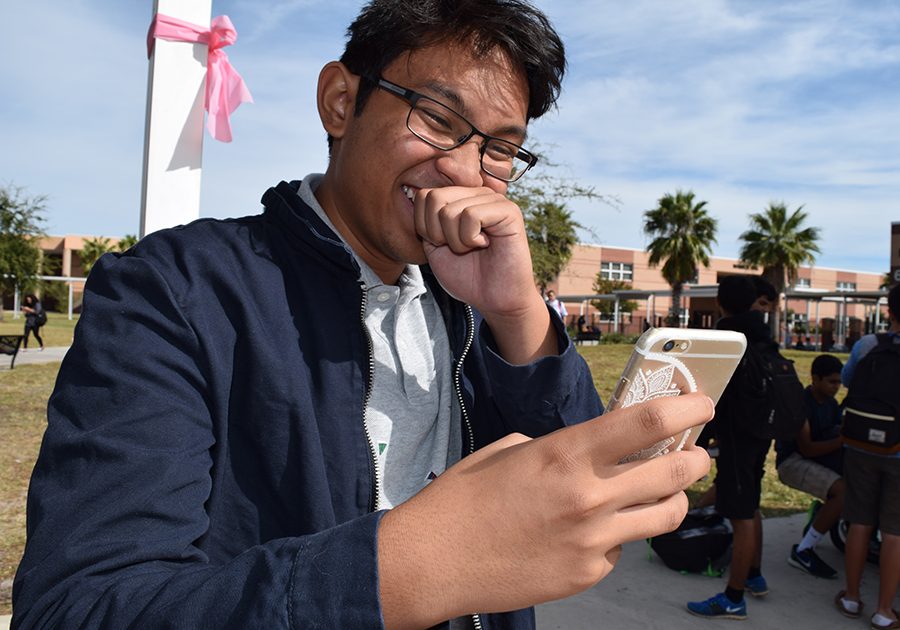WHY DON’T WE CARE?
Students react to viral events circulating on social media.
November 3, 2016
During and in the aftermath of Hurricane Matthew, many – specifically millenials – flooded social media with jokes about its insignificant effect on Florida. Meanwhile, Haiti has not been devastated to this same magnitude since the earthquake that struck the nation in 2010. This difference of viewpoints leads many to ask the question, “Do Americans even care?”
This year can be easily be considered interesting, but it seems that no matter how drastic situations become people care less and less. On social media especially, jokes are made out of major issues. This causes many to draw the conclusion that Americans suffer from “first-world privileges.”
Junior Simran Shah said, “I don’t think that Americans are the only people that don’t pay attention to things that don’t concern them. I feel like this is a problem in all first-world countries, since we’re more privileged and don’t understand the hardships people have to go through in other parts of the world.”
Several memes began to circulate the Internet soon after Hurricane Matthew about its low impact on teenagers, as many had hoped for more days off from school; however, at the same time in Haiti, the hurricane resulted in almost 900 casualties and the destruction of thousands of homes, crops, and livestock in the areas affected.
Junior Sania Shaukat said, “I think people need to be more aware of the jokes they make on social media. While some can be funny, others can dehumanize people or belittle significant tragedies.”
Despite this, the damage in Haiti received almost no coverage on mainstream and0. social media, with CNN only running a five-minute segment on the issue. This shows how Americans can often appear not to care about issues that do not directly pertain to them.
Senior Katherine Lachcik said, “I wouldn’t go so far as to say all Americans don’t care, but it definitely seems that the mentality of ‘we’re not there, so it doesn’t matter’ is evident in a lot of people. Making jokes or just being indifferent to the struggles in other countries or regions surfaces from this distance between us, and the simple fact that our world is a one that is almost separate when you compare it to other places on Earth.”
American apathy is seen again in the killing of Harambe, a gorilla at the Cincinnati Zoo. The Internet was bombarded with memes about him after his death – some referring to Harambe as an “American hero.” Others have gone as far as proposing that Andrew Jackson’s image on the ten dollar bill be replaced by him. While this is seemingly sarcastic and humorous, the extent to which this joke has reached has sparked concern.
While some conclude that the popularity of this gorilla resulted from the animal rights activists who believed that the endangered species should have been better protected, the turn the coverage of his death took was not anticipated by anyone. The transformation from tragedy to comedy has led to the speculation that Americans, specifically millenials, lack empathy.
Lachcik added, “I think that while some people are genuinely concerned with all that’s going on right now, others definitely seem to act more indifferent or make jokes out of everything. It could just be a way to hide what they’re really thinking or just trying to add humor to the situation, but there is a definite lack of empathy and connection in a lot of people.”



















